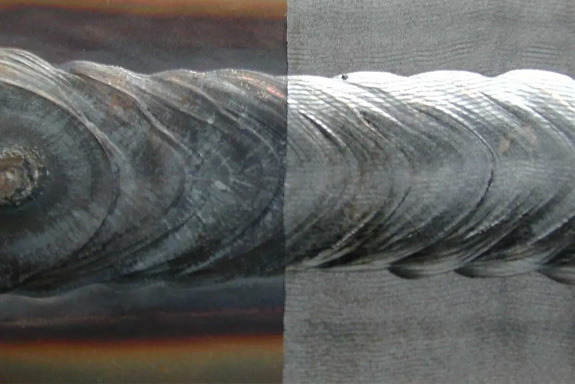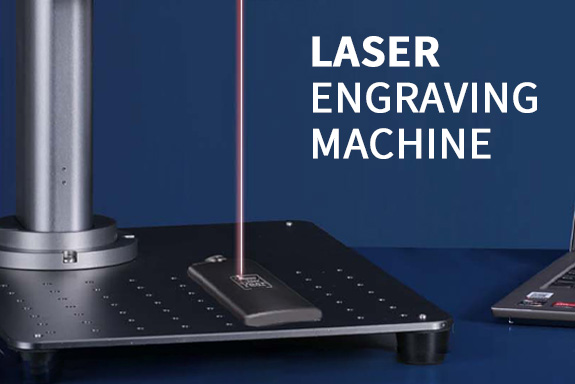In today’s fast-paced and competitive industrial landscape, the demand for efficient and versatile marking solutions has never been higher. Portable type laser marking machines have emerged as a popular choice for manufacturers seeking precise, permanent, and high-quality marking on a wide range of materials. With the advancement of laser technology, three main types of portable laser marking machines have gained prominence: FIBER, CO2, and UV. Each of these technologies offers unique capabilities and advantages, making it essential for businesses to understand their differences and applications to make informed decisions. In this comprehensive guide, we will delve into the world of portable type laser marking machines, exploring the features, benefits, and applications of FIBER, CO2, and UV technologies.

FIBER Portable Type Laser Marking Machine
FIBER laser marking machines have gained widespread popularity for their exceptional precision, speed, and versatility. These machines utilize fiber lasers to generate a high-intensity beam of light that is ideal for marking a variety of materials, including metals, plastics, ceramics, and more. One of the key advantages of FIBER technology is its ability to deliver crisp, high-contrast marks with minimal heat-affected zones, making it suitable for applications where precision and quality are paramount.
The portable nature of FIBER laser marking machines further enhances their appeal, allowing operators to easily move the equipment to different workstations or production lines. This flexibility is particularly valuable in dynamic manufacturing environments where space is limited, and rapid setup and reconfiguration are essential.
CO2 Portable Type Laser Marking Machine
CO2 laser marking machines are renowned for their ability to deliver high-quality marks on non-metallic materials, such as wood, glass, paper, leather, and certain plastics. These machines utilize a carbon dioxide laser to produce a focused beam of infrared light that interacts with the surface of the material, resulting in precise and permanent marking. The versatility of CO2 technology makes it a popular choice for industries ranging from packaging and signage to arts and crafts.
The portable type CO2 laser marking machines offer the added advantage of mobility and convenience, allowing operators to bring the marking capabilities directly to the workpiece, regardless of its location within the production facility. This portability streamlines the marking process and eliminates the need for transporting large or cumbersome items to a dedicated marking station.
UV Portable Type Laser Marking Machine
UV laser marking machines have carved a niche for themselves in industries that demand high-contrast, non-contact marking on sensitive materials, such as semiconductors, electronic components, and medical devices. These machines utilize ultraviolet lasers to achieve precise and permanent marks by inducing photochemical reactions on the surface of the material. The ability of UV technology to produce fine, high-resolution marks with minimal thermal impact makes it an ideal choice for applications where heat-sensitive substrates or intricate designs are involved.
The portable nature of UV laser marking machines empowers manufacturers to integrate marking processes seamlessly into their production workflows, ensuring efficient and reliable marking without compromising the integrity of delicate components or materials. This mobility enables operators to address marking requirements with precision and agility, contributing to overall productivity and quality control.
Comparative Analysis
While FIBER, CO2, and UV portable type laser marking machines share the common goal of delivering high-quality, permanent marks, each technology possesses distinct characteristics and capabilities that cater to specific industry needs. A comparative analysis of these technologies can help businesses make informed decisions when selecting the most suitable portable laser marking solution for their applications.
FIBER technology stands out for its exceptional precision, speed, and suitability for marking a wide range of materials, particularly metals and plastics. The ability of FIBER laser marking machines to produce high-contrast marks with minimal heat-affected zones makes them well-suited for applications where intricate designs, small text, or barcodes need to be marked with precision and clarity.
On the other hand, CO2 technology excels in marking non-metallic materials, offering versatility and flexibility for industries that work with wood, glass, paper, and various plastics. The portable type CO2 laser marking machines provide the convenience of on-the-spot marking, eliminating the need to transport large or delicate items to a dedicated marking station, thereby streamlining the production process and reducing handling time.
UV technology, with its ability to produce high-contrast, non-contact marks on sensitive materials, addresses the specific requirements of industries dealing with semiconductors, electronic components, and medical devices. The portable nature of UV laser marking machines enables manufacturers to integrate marking processes seamlessly into their production workflows, ensuring precision and reliability without compromising the integrity of delicate components or substrates.
Applications
The diverse capabilities of FIBER, CO2, and UV portable type laser marking machines open up a wide array of applications across various industries. Understanding the specific applications of each technology is crucial for businesses to leverage the full potential of portable laser marking solutions.
FIBER laser marking machines find extensive use in industries such as automotive, aerospace, electronics, and tooling, where durable, high-contrast marks are essential for part identification, traceability, and branding. The ability of FIBER technology to mark metals, plastics, and ceramics with precision and speed makes it a valuable asset in applications ranging from serial number engraving and component labeling to decorative marking and promotional branding.
CO2 laser marking machines are widely employed in industries involved in packaging, signage, woodworking, and arts and crafts, where non-metallic materials require permanent and high-quality marking. The versatility of CO2 technology allows for the marking of intricate designs, logos, expiration dates, and barcodes on materials such as cardboard, glass, leather, and certain plastics, catering to diverse marking needs across different sectors.
UV laser marking machines are indispensable in industries dealing with semiconductors, electronics, medical devices, and precision engineering, where high-contrast, non-contact marking on sensitive substrates is critical. The ability of UV technology to produce fine, high-resolution marks without causing thermal damage makes it an ideal choice for applications such as component serialization, micro-machining, and medical device marking, where precision and quality are paramount.
Conclusion
In conclusion, portable type laser marking machines equipped with FIBER, CO2, and UV technologies offer manufacturers a versatile and efficient means of achieving precise, permanent marks on a wide range of materials. Understanding the unique capabilities and applications of each technology is essential for businesses to make informed decisions when selecting the most suitable portable laser marking solution for their specific requirements. Whether it’s the exceptional precision and speed of FIBER technology, the versatility and flexibility of CO2 technology, or the high-contrast, non-contact marking capabilities of UV technology, portable type laser marking machines continue to play a pivotal role in driving productivity, quality, and innovation across diverse industries. As technology continues to advance, the evolution of portable laser marking solutions is poised to further enhance manufacturing processes and enable new possibilities in product identification, traceability, and customization.
由用户整理投稿发布,不代表本站观点及立场,仅供交流学习之用,如涉及版权等问题,请随时联系我们(yangmei@bjjcz.com),我们将在第一时间给予处理。






